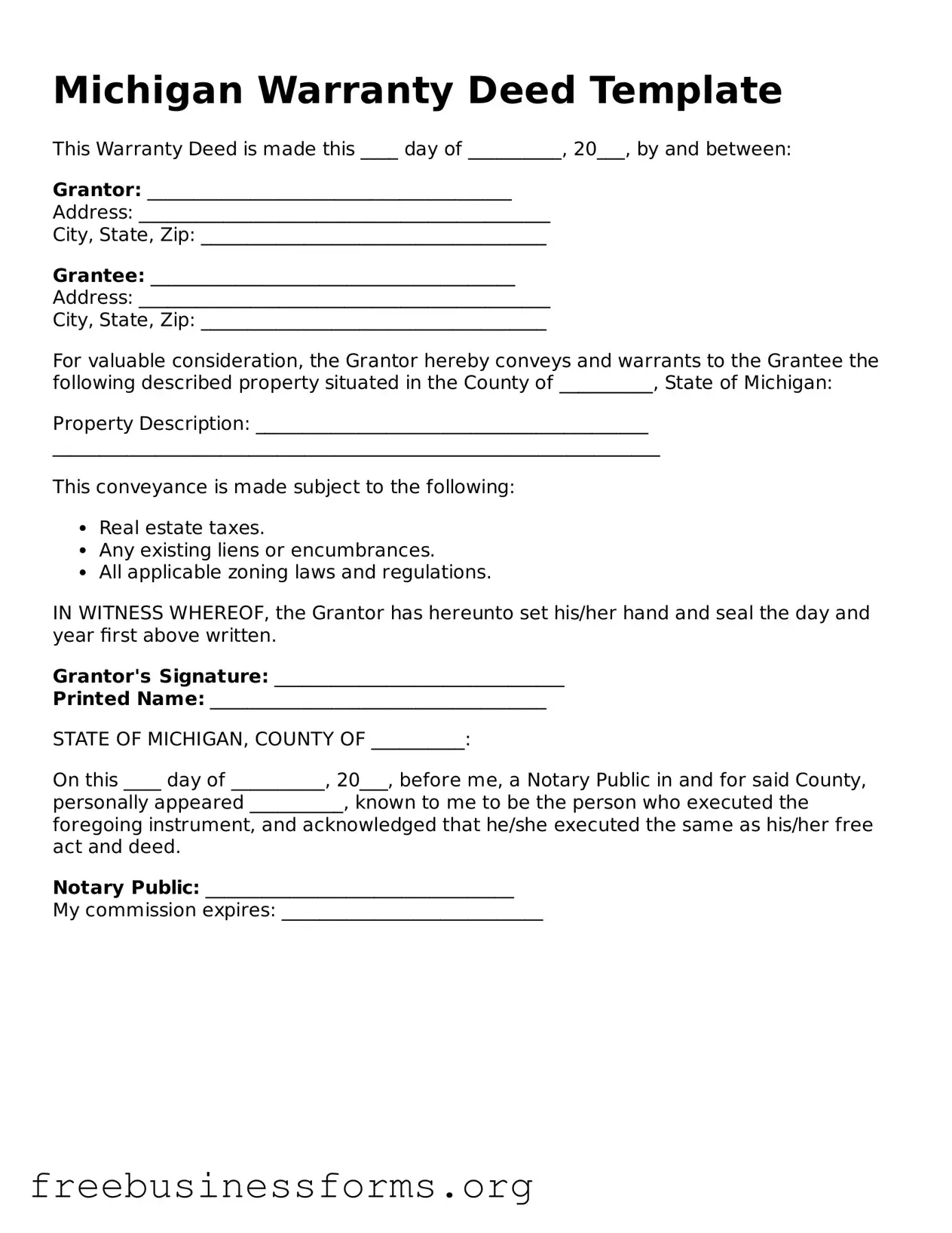Blank Deed Template for Michigan
A Michigan Deed form is a legal document used to transfer ownership of real estate from one party to another. This form outlines the details of the property and the parties involved in the transaction. Understanding how to properly complete and file this form is essential for ensuring a smooth transfer of property rights.
Open Form Here

Blank Deed Template for Michigan
Open Form Here

Open Form Here
or
↓ PDF File
Quickly complete this form online
Complete your Deed online quickly — edit, save, download.